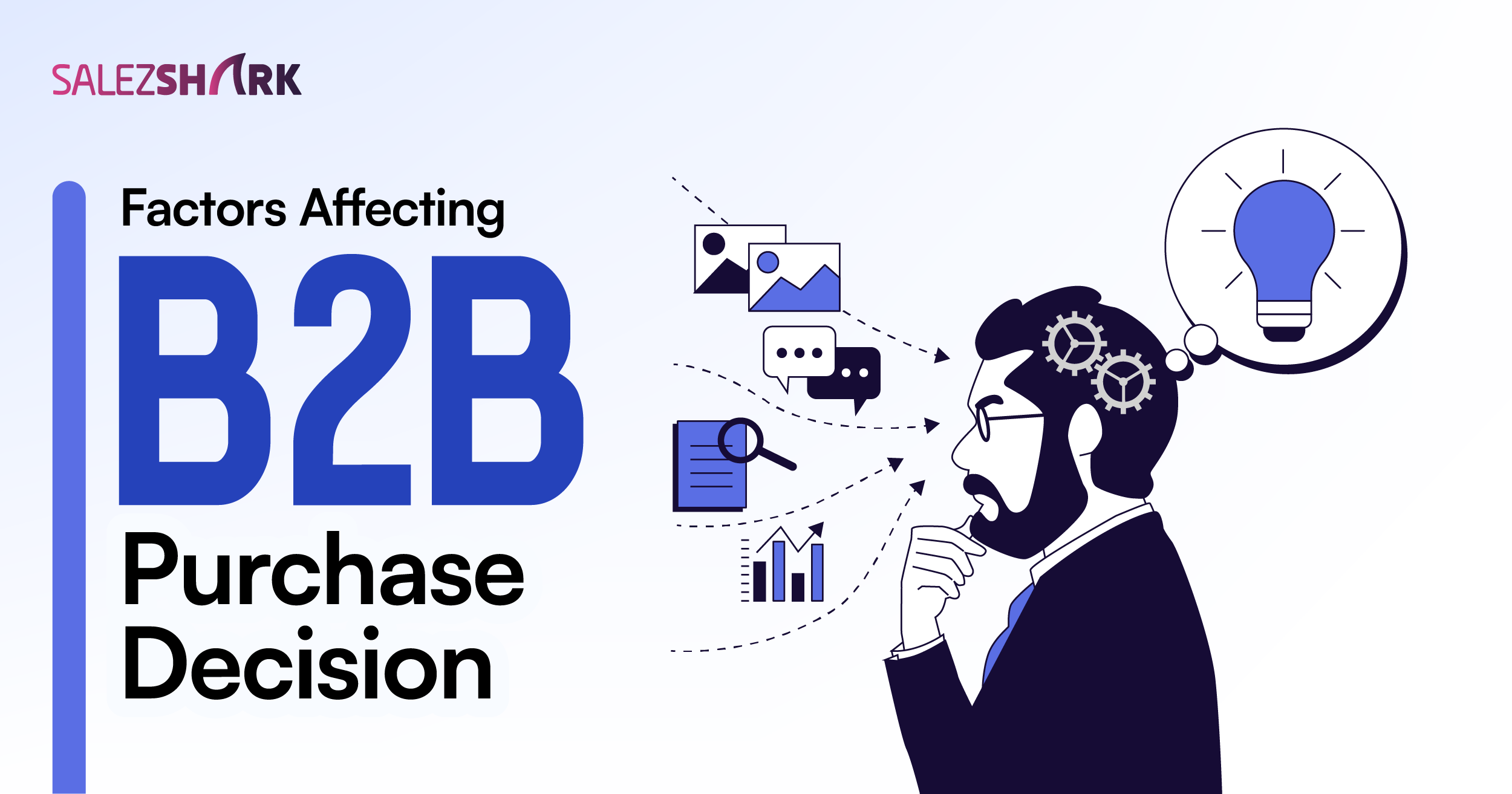The B2B purchase decision is not generally a solo shot. It has to be a group decision. Usually, there is a team of people who analyze the possible purchase and in some cases, there is a top-level person who has the power to grant the purchase.
Every b2b organization including you, should consider the factors influencing the purchase decision while generating your marketing and sales plans.
B2B buying is much more difficult than B2C buying. The tangled interpersonal relations and the several communication processes among the organizational associates, concerned with the buying decision procedure, are the chief providers to this difficulty.
Usually, some factors can influence a B2B purchase decision, however, it is imperative to first understand the typical characteristics of a B2B purchase.
Distinctive Characteristics of B2B Buying
- B2B buying is not a single-person process but a multi-person process, for almost more than 90% of the B2B buying. Bigger purchase requires decisions from diverse departments, top levels, and different management levels.
- While making a purchase the organizations always follow a careful formal process that leads to the real purchasing
- B2B buying decisions cannot be taken at once. When it comes to critical purchases, the buying decisions can take time as long as a year.
Moving on, even though a B2B purchase decision is way more complex than a regular ones, there are a bunch of factors that can influence the former. Studying these factors will not only give you an in-depth understanding of general consumer behavior but will help you draft appropriate sales strategies that can help you drive more closures and sales.
Factors Affecting B2B Purchase Decision
Here are some of the External factors that you can explore below:-
Economic Condition
A major impact on buying decisions and strategies is caused by the fluctuations in the money markets and the rate of interest. Both interest rate and business buying have an opposite relation, a decrease in interest rates leads to a higher purchase rate.
Political Environment
A change in government policy makes an impact on the economy, which further leads to affecting the business buying decision of the products. Later, it also changes the B2B purchase decision.
Competition
In the industry, the main motto of any business is to always stay ahead of its competitors therefore when a business’s competition moves ahead and is changing its product or if they are enjoying in the market because of its suppliers, the businesses tend to change their trends and this also leads to a change in the business buying decision.
Social Environment
Societies and cultures are evolving day by day and businesses have to keep up with those changes by following updated procedures to meet these changes.
Here are some of the internal factors that you can explore below:-
Business Objectives
The goals and objectives act as a major element as to what the business will purchase. If an organization wants to acquire a market by selling cheaper goods it will need to find a supplier with low costs. However, if a business wants to sell better quality products then they might have to look for a very good supplier. The buying behavior depends on the goals and objectives of the businesses.
Technological Factors
While buying a new product the decision makers always consider the existing technology. Few purchases are made to change the current technology. They also make sure that the new products are compatible with the technology or not. Therefore somehow technology acts as a factor influencing the business buying decisions.
Manpower Skills
These skills are as important as the decision-makers and the products since they are the ones, who are going to use the new purchases made and are going to make the most of it. Particularly the equipment and machinery. In this way, it influences the business buying decisions.
Also Read- Understanding the Modern B2B Buyer
Here are some of the Individual and Interpersonal factors that you can explore below:-
Individual Factors
It includes as social status, age, or cultural background of the decision-makers, which also influences the buying decisions.
Interpersonal Conflict
This leads to a change in the results taken by the decision-makers. Thus the relationship and the attitude among the decision makers play a very important role in the business buying.
Here are some of the conditional factors that you can explore below:-
Present Financial Condition
If a B2B organization is running low on cash, it might decide to purchase from its current supplier who offers credit for a long. Also if an organization does not have enough money for a particular purchase, it might then just go for a cheaper and easily available product that is inside their budget.
Availability
There are times when some buying decisions cannot hang around; the organizational buyers may go to new suppliers who are willing to supply products if the present suppliers fail to supply the exact product needed.
Conclusion
Understanding the top factors that influence a B2B purchase decision is crucial for success. Factors like price, product quality, vendor reputation, and customer support play key roles. By addressing these factors effectively, businesses can enhance their ability to win and retain B2B customers.

